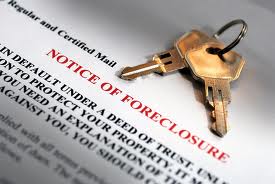
BLOG
Navigating the California Insurance Crisis: Insights for Homeowners
Discover the critical factors driving this challenging situation, from the impact of climate change to major insurers withdrawing from the market. Gain valuable knowledge on how this crisis affects homeowners and potential buyers, not just in California but across various states. Learn about legislative responses, market implications, and practical advice for navigating these turbulent times in the real estate world. A must-read for anyone looking to understand the current landscape of homeownership and insurance."
As a REALTOR® with over 16 years of experience, I've witnessed the ebbs and flows of various markets, from the downturns to the surges. My journey since 2006 has taught me one fundamental truth: education is the cornerstone of successful homeownership. Whether you're buying a modest family home or investing in a luxury property, understanding the nuances of the market is crucial. Today, I want to address a critical issue affecting homeowners, particularly in California – the ongoing insurance crisis. Although we will be discussing California, this issue is trickling down to other states as well!
Understanding the Crisis
The California insurance crisis is a complex issue with far-reaching implications. Major insurers like State Farm and Allstate have stopped providing coverage in the state, posing a significant challenge for new homeowners seeking insurance. This withdrawal is primarily due to the increasing impact of climate change, which has led to frequent and severe natural disasters like wildfires and earthquakes. In recent years, California has seen unprecedented destruction due to these disasters, with insurers paying out vast sums in claims.
The Ripple Effect
This crisis isn't confined to California. States like Florida, Louisiana, and Colorado are facing similar challenges. In Florida, for instance, the aftermath of natural disasters led to the closure of 15 insurance companies and a spike in premium rates. Louisiana saw 11 companies go bankrupt following Hurricane Laura. These events signify a broader trend that could affect homeowners across the United States.
Legislative Responses
In response, various states have enacted legislation to stabilize the market. These measures range from capping premium rates to encouraging new insurers to enter the market. However, the effectiveness of these interventions remains to be seen.
Impact on Homeowners
For homeowners, especially those in high-risk areas or with limited incomes, this crisis has made insurance unaffordable and hard to obtain. This situation underscores the need for a stable insurance market that can adapt to the challenges posed by climate change.
My Perspective as a Real Estate Professional
In my career, spanning deals from $25,000 to $2,000,000, I've always emphasized the importance of being well-informed. The current insurance crisis in California and its effects on other states highlight the need for homeowners and potential buyers to be aware of the market's realities. Whether you're in a hot market or a down market, understanding these dynamics is crucial for making informed decisions.
Moving Forward
For those affected by the California insurance crisis or similar situations in other states, my advice is to stay informed and explore all available options. Seek advice from local experts, and don't hesitate to look into alternative insurance solutions. Remember, buying or selling a home is an emotional journey, but with the right information and guidance, it can also be incredibly rewarding.
As we navigate these challenging times, I remain committed to educating my clients and helping them make the best decisions for their unique situations. The real estate market is ever-evolving, and staying ahead means being prepared for any scenario.
*For more insights into the real estate market and tips on homeownership, follow my blog or reach out for personalized advice.
Schedule A Free Consultation or Home Assessment Today!
Talk To Laura
DIY Bucket List
This is a wonderful story about making their house a home! With so many options out there today it's hard to choose what you want in your own home.
Homebuyers clueless about mortgages
Educating homebuyers is one of my favorite things to do! Ask me about my homebuyers class! Laura Key 310.866.8422
The housing market is heating up, yet many house hunters are not prepared to take on the biggest purchases of their lives.
When it comes to mortgages, homebuyers answered basic questions about terms, how to choose a lender and financing wrong nearly one-third of the time, according to an April survey of more than 1,000 current and prospective homeowners by real estate website Zillow.
Among the survey's findings, 31% of buyers don't think it's possible to get a mortgage for less than 5% down; 34% don't know what the term "annual percentage rate" (APR) means and one in four believe you must close with the lender that pre-approves your mortgage.
"All too often buyers focus on negotiating a lower home price and ignore the importance of finding the right loan," said Erin Lantz, director of mortgages for Zillow. "Buyers should always shop multiple lenders and compare rates and fees and read lender reviews in order to find the best loan for their situation."
One example: 34% of respondents believe lenders are required by law to charge the same fees to all clients for credit reports, appraisals and the like. That's wrong. Fees vary from bank to bank and can often be negotiated.
But it's hard to compare those deals if you don't understand what mortgage terms, like "annual percentage rate," mean. The APR factors into fees, upfront points, origination and underwriting fees and other costs that borrowers use to compare the actual cost of loans.
Such knowledge gaps can have long-term consequences. About 34% of first-time homebuyers think they need a down payment of at least 5% to make a home purchase, but loans insured by the Federal Housing Administration can require as little as 3.5% down.
And 24% of buyers believe the best mortgage deals are available through the banks where they currently have their savings and checking accounts, but often competing lenders can undercut those banks by large margins.
"If a homebuyer can lower their interest rate by even half a percentage point, they can not only increase their purchasing power, but save thousands of dollars over the life of the loan," said Lantz.
For every $100,000 borrowed, a half percentage point lower rate would reduce payments by $28 a month on a 30-year, fixed rate loan. That adds up to more than $10,000 over 30 years. Or borrowers could choose to add that $28 savings to each monthly payment. That would shorten the term of the mortgage from 30 years to just over 27 and save $6,500 in interest paid.
Another costly mistake: Many house hunters go shopping with financing in place because it enables them to act more quickly if they see a home they want. But 26% of buyers believe that once they're pre-approved, they're obligated to close the deal with those loans, according to the survey. In reality, there's no obligation. If buyers see better terms available they should take them.
Existing homeowners can also be guilty of ignorance. Some 20% of homeowners surveyed didn't know that underwater mortgages -- those in which borrowers owe more than their homes are worth -- can be refinanced into lower rate loans.
Finally, the survey found that nearly a third of homeowners are unaware that if they go through a foreclosure or short sale, they may not have to wait the full seven years it takes for their credit score to recover and they can buy a home again.
In reality, some homeowners who do short sales can obtain financing to buy another home in as little as two years.
The Consumer Financial Protection Bureau is hoping to make it easier for homebuyers with simplified mortgage forms that help them compare terms and costs and by creating new rules that will protect homeowners from getting into loans they can't afford.
Free home search here! Click the house to begin!
Source: By Les Christie @CNNMoney May 9, 2013
Keep Your Home California Debuts New Interactive Website
See if this new program can help you save your home. Call me with questions and other possible options!
- Unemployment Mortgage Assistance Program: Homeowners can receive as much as $3,000 per month in mortgage assistance for up to nine months. Homeowners must be currently receiving or approved to receive jobless benefits from the state Employment Development Department.
- Mortgage Reinstatement Assistance Program: Homeowners can receive as much as $25,000 in assistance to help them “catch up” on their past-due mortgage payments. Homeowners must have suffered a financial hardship and be able to make their mortgage payments going forward.
- Principal Reduction Program: Homeowners can get as much as $100,000 in principal reduction. To qualify, the homeowner must have suffered a financial hardship and be able to make their mortgage payments in the future. Also, the current market value of the home must be less than what is owed on the mortgage, that is, “underwater.”
- Transition Assistance Program: Homeowners can collect up to $5,000 to cover relocation costs as part of a servicer-approved short sale or deed-in-lieu of foreclosure of their home.
If a Home Gets Hit by a Meteor, Who Pays?
After a meteor struck western Siberia and more meteors threatened the entire globe on Friday, CNNMoney asked the question: Who pays for damage to a home if hit by a space object?
Rest easy, “your insurance covers falling objects," says Robert Hartwig, president of the Insurance Information Institute. In the rare events when meteors have crashed through home owners’ roofs over the years, insurers have paid the damage for those insured, Hartwig says.
“Blue ice” — the frozen sewage that sometimes falls from airplanes — is more common and is also covered if it falls from the sky onto your home, Hartwig told CNNMoney.
A remnant of a meteor struck in the Urals region of western Siberia Friday injuring more than 700 people and damaging nearly 300 buildings. It was referred to as a “once-in-a-century” event.
"The earth is pelted with 40 tons of space debris a year," says Laurie Leshin, a former NASA scientist. "Most of that is in teeny dust particles" and rarely does it injure people or damage property.
Source: “Who Pays for Damage From a Meteor?” CNNMoney (Feb. 15, 2013)
Thinking of selling your home? Call Laura Key today for more info on what the value of your home is worth in this market! The market has changed? How does it effect you? 310.866.8422 or visit www.KeyCaliforniaHomes.com




